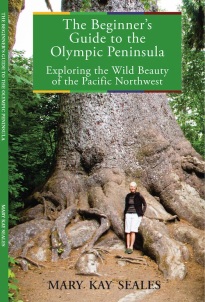by Mary Kay Seales
Time to become a believer. Our planet is dying and we are killing it.
Most people think global warming is a phenomenon in the air, and don’t realize that the oceans are also warming up, and this is even more deadly to us all. Like a fever when we have an infection, the oceans are telling us they’re sick, almost irreversibly so.
A classic problem of “out of sight, out of mind,” we can’t see the vast swaths of plastic debris floating in the middle of the Atlantic and Pacific Oceans, the baby albatross whose stomachs are full of bottle caps, and bits and pieces of ingested garbage.
https://www.lensculture.com/articles/chris-jordan-midway-message-from-the-gyre
In the last 30 years, 50% of the coral in our oceans has died, and it continues. These beautiful, living and breathing creatures, who protect and give life to other creatures, including us, are reacting to the rising temperatures by a slow suicide.
500 million people on the planet depend on the sea for their food source.
Islands in the Pacific, nation-homes to people, are being swallowed up, with plans for evacuation in place for when the time comes, and their very homeland disappears into the sea.
Can your actions today really have any impact on this out-of-control disaster?
Allow me to digress. Unless you’re sixty-something years old, you have no memory of the Make America Beautiful campaign launched by First Lady, Lady Bird Johnson, in 1965. What started as her efforts to clean up the streets of Washington, D.C. spread to every city and town in the nation, and it happened quickly.
Until that time, I kid you not, we had no qualms about throwing a candy wrapper on the sidewalk or out the window of our car. There were no garbage cans on street corners. Littering was completely acceptable, not even a conscious thought. I’m not even sure we even used the term “littering.”
http://www.pbs.org/ladybird/shattereddreams/shattereddreams_report.html
So the answer is “no,” your actions alone cannot stop the death of our planet.
BUT, your tiny actions, mine, our neighbor’s, and their neighbor’s can, and that change can start happening today.
8 THINGS YOU CAN DO TODAY (or this month, or this year)
1. Cease and desist using plastic as much as you possibly can today! Plastic does not break down. You may think you’re recycling those plastic water bottles, but millions end up in the middle of the Pacific Ocean. Buy one water bottle and reuse it. Believe me, it will last you forever, which is exactly the problem.
2. Donate to and/or volunteer for organizations that are working on this problem: Here are just a few:
- https://oceanconservancy.org
- https://www.plasticoceans.org/projects/
- https://www.theoceancleanup.com
- http://www.greenpeace.org/usa/
3. Educate yourself and others. Share this post on Facebook and Twitter. Watch documentaries and read books on the subject. Urge your children’s teachers to include this as part of their curriculum. Sponsor a movie, clean-up, booth, or whatever, on Earth Day this year that focuses on this problem. The Netflix Original movie “Chasing Coral” is a great idea.
4. Elect people to office that don’t have their heads in the sand about global warming and other environmental issues. We don’t have any time to waste on politicians who don’t believe in global warming or think it’s a non-issue, something to put on the back burner. Other issues will quickly cease to matter if the planet dies.
5. Go see it with your own eyes. Take your children. Make them fall in love with the oceans. If you can afford it, send them on a semester-at-sea program, go to Bora Bora and Tuvalu and Fiji, and other islands that are endangered, and take lots and lots of photographs. We all need to feel the pain of this loss for ourselves.
These beautiful places need, at the very least, to be documented in their glory for the aliens who will find them later. “Gee, this place used to be incredibly beautiful,” they’ll say.
6. Protest, and support others who protest. Screaming and shouting has its place.
7. Don’t buy or use products that encourage loss of ocean habitats, i.e. coral, sunscreens, and clothing that sheds microfibers. As the National Oceanic and Atmospheric Administration (NOAA) puts it: “Corals are already a gift. Don’t give them as presents.”
Is Your Sunscreen Bad for the Planet? Here’s How to Choose an Ocean-Safe Formula
https://www.patagonia.com/blog/2017/02/an-update-on-microfiber-pollution/
8. Pray. It may be that only God Himself can save our beautiful seas.
The Olympic Peninsula of Washington State is a vast green and blue landscape of lush rainforests, craggy snow-capped mountains, cold, fresh rivers, glacial, deep blue lakes, and ghostly, fogged-in ocean beaches. For those growing up in Washington State, it’s a place of memories: a paradise of green and water, logs to climb on, places to run freely, shells to discover, and the perfect smell of a campfire. This book is a guide for the newcomer, the first-time traveler to the Olympic Peninsula, a place to start your exploration. You will find easy-to-use information about ten beautiful locations along or accessible from scenic U.S. Route 101, including where you can stay, what you can do there, and why you should go! No matter how many times I explore this natural wonderland, its wild beauty never ceases to fill up my soul.

